The next in our series of resume critiques is a writer. Believe it or not, writers often struggle more than anyone else with putting together a resume; we’re the best at getting in our own way. This particular writer is UK-based, as you’ll note by the format of the contact info and the university locations, but the same general principles of good resume writing still apply. Let’s take a look at hers:
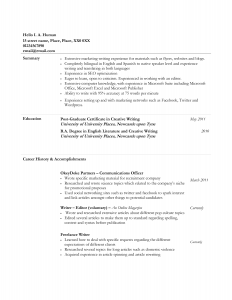 |
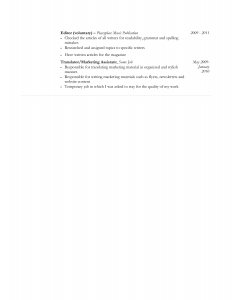 |
Click to enlarge each page.
What You Did Right
- Opening summary. So far you’re the first of my critiques that actually included a proper opening summary. You did good, bb.
- Two pages. You’ve kept your information short and to the point with two pages. Go you.
What You Did Wrong
- Overly long professional summary. While it’s great that you included an opening summary and it’s mostly pretty focused on your professional career and capabilities, it’s still too long. Seven bullets, especially when some take up more than two lines? That’s too much. Instead cut it down to no more than five, each one line long.
- Fluff in the summary. One way you can cut it is to get rid of fluff. “Eager to learn, open to criticism” has no concrete value to an employer. You’re not here to talk about your personal traits. You’re here to talk about your professional capabilities. Fill this space with things that state what you can do, not who you are or your particular character value.
- …oh bae. Is that a Word template? I’m pretty sure I’ve seen this format as an older Word template dating back to before that blasted Ribbon was introduced, and even if it’s not a Word template it looks like one – and that’s resume suicide. It makes you look generic, with nothing to stand out. You need a neater, more modern format that isn’t so obviously template-based or template-imitative.
- Tiny serif font. First, don’t ever use serif fonts. They’re difficult to read in resume format. Second, serif fonts should rarely go below size 12, and this one is Garamond size 11. It’s itsy and hard to read. I had to squint at it at 120% zoom on a laptop with 1920×1080 resolution. Third, if you absolutely must use a serif font, please stick with Times New Roman. The stylizations on Garamond are subtle, but still obvious enough that the little curls make reading and information retention harder.
- TABLES. WHY. So this is something only I can see, not readers, but this resume is formatted using tables. If you can avoid doing this, please do. Tables will break when a document is opened on various devices or platforms, and cause major problems with document flow onto the next page. Tables are poorly coded in Word and just don’t behave well. Only use them as a last-ditch necessity.
- Where are your skills? You don’t have a searchable list of bulleted skills that will get you past automated text scanners and give you a good place to put details that don’t belong in your opening summary. Like SEO optimization, bilingual fluency, Microsoft Office suite proficiency, and typing speed/accuracy. (Honestly I’d take that 95% accuracy out of there. You’re undercutting yourself.) Move those to your skills section, then build it out with a few more strong searchable skills taken from target job applications.
- WHERE ARE YOUR ACHIEVEMENTS. Three people. Three critiques so far. NO ACHIEVEMENTS WHAT ARE Y’ALL DOING. *ahem* I’m sorry. I’m a little punch-drunk right now. Those achievements are the heart of your resume. You should be writing those first, and centering everything else on that. This is the meat of your content, and what employers care about the most. Learning how to deal with client requests isn’t an achievement. Employers never want to see you bragging about learning things. Learning things is good, but it’s not an accomplishment that you had to learn how to do this rather than coming into the job fully equipped. To them that costs them money, in the time they spend paying you to learn how to be effective at your job. Instead you could say you ensured client satisfaction by adapting to challenging and constantly-changing customer requests with ingenuity.
- Grammar, spelling, and punctuation. Although I changed the street name, I left the capitalization intact; you wrote your street name in lower case. You did the same with Twitter and Facebook, writing them as “twitter” and “facebook.” Make sure to use the proper case for everything in your resume. You’re also missing some commas here and there, and I don’t just mean Oxford commas – you’re consistent in not using those, but the sentence that begins with “Use social networking” under your most recent job could use some punctuation. Also, in your role as Translator / Marketing Assistant, you slipped into first-person writing with “in which I was asked to stay for the quality of my work.” Except without that period I just added. All your bullet points save one are missing periods, and you should have them. They’re complete sentences minus the subject of “I.” You could also tighten up the writing here and there, such as changing “Have written articles for the magazine” to “Wrote articles for the magazine.” Watch out for such passive statements and clean them up.
- Responsible for. Not only did you use the dullest no-no word in resume writing, but you used “responsible for” twice in two consecutive bullets. Eliminate all uses of “responsible” from your resume.
- Messy and inconsistent formatting. Your date alignments are all over the place. At one job you list your job header as Company Name – Title, but at others it’s Title – Company Name, not only changing the order but also changing the use of bold vs. italics, etc. Except the oldest one as a translator? Separates title from company with a comma, instead of the em-dashes used elsewhere. At An Online Magazine, there’s a random space before “Wrote” in your first bullet.
- Misplaced education. I know in European CVs you generally put your education first, but a.) this isn’t really a CV, it’s more of an American-style resume, and b.) that practice is falling out of fashion. Education goes at the end. You want as much of your experience and skills on the first page as possible to catch the reader and keep them. Also drop the dates from your education. That, too, is out of fashion.
- Dates? Chronological order? Uh? So at An Online Magazine and Freelance Writer, it just says “Currently.” …boo, when did you start? These should say “####-Present” so we know how many years you’ve been doing this. Otherwise it looks like you’re trying to hide or pad something. It also makes it look like your resume might be out of chronological order.
- Months yes / no / WHY. No. I know some of y’all cling to the months on the CV across the pond, but stop please please pretty please. It’s not relevant. It’s extra info. It’s clutter. It’s distracting. Also if you are going to include the months, be consistent about it. You have months on two jobs, no months on one job, months on your post-graduate certificate, no months on your degree. Pick one side or the other, no in between.
- Mention of voluntary employment. You worked at the music publication for two years. It’s valid experience. There’s no reason to call it out as voluntary; doing so immediately invalidates it as a hobby with no professional value if you mark it as volunteer work. The same for the Writer / Editor position. Don’t give people a chance to devalue it.
- Why is that bottom border there? There’s a random border at the footer of your experience, and it needs to go. It looks like a carryover from copying other content blocks, but it also looks like sloppy formatting that will make employers think you’re careless.
- No second page headers. Your second page should always have a header in the format YOUR NAME * PAGE 2 OF 2 * 01234567890 * EMAIL@EMAIL.COM. Never make them search for your contact info or have to go beyond one click to get in touch with you. You always want to make it as easy as possible for them to follow the impulse to contact you without even thinking.
- You wouldn’t need second page headers if this was one page. You honestly could condense this down to one page. I like white space, but with the deep indents pushing content to the right you’re actually wasting space. Your second page overflow isn’t even a third of the page. You could easily rewrite to consolidate and give yourself a nice, neat, attractive one-page sell sheet.
I’m sorry. I got a little punch-drunk with this one, but, well, if you’ve even glimpsed the book you know this is fairly normal. But look, even if I called out a lot of problems, you still have a good core of substance. You just need to refine it to draw the diamond out of the rough, and I know you can do that.
You’re a star, baby bird. Or you’re a baby bird, I mean you could be both at once. Either way, bright thing, sky, go you, shine on. I’m pretty sure I just came close to plagiarizing the Reading Rainbow theme song, but anyway.
– Adam
Want your resume critiqued? Head here and follow the instructions.
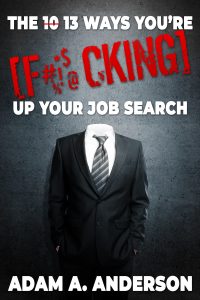 Learn more about how to write a better resume in THE 13 WAYS YOU’RE F*CKING UP YOUR JOB SEARCH.
Learn more about how to write a better resume in THE 13 WAYS YOU’RE F*CKING UP YOUR JOB SEARCH.
No one likes being called a fuckup, but I’d bet you like being a fuckup even less. Get more extensive how-to advice on cleaning up your job search game, sprucing up your resume, tackling interviews, changing career paths, discussing salary negotiations, how not to be an utter shit in the workplace, and more with 300+ pages of advice mixed with vitriol, anecdotes, and a few questionable comments that made my editor say “…seriously, Adam? Why.”
$4.99 on Amazon | Free on KindleUnlimited
 Once, when working with a client, we had a rather vehement argument in which he tried to convince me to add blatantly untrue things to his resume. I refused. I pointed out the consequences of lying on hisresume. He laughed in my face, and bragged that at his very first job he submitted a completely fictional resume, was hired based on fake qualifications, and went on to prove he could do the job. He just needed that lie to get his foot in the door and start his career. Besides, everyone lies on their resumes. Right?
Once, when working with a client, we had a rather vehement argument in which he tried to convince me to add blatantly untrue things to his resume. I refused. I pointed out the consequences of lying on hisresume. He laughed in my face, and bragged that at his very first job he submitted a completely fictional resume, was hired based on fake qualifications, and went on to prove he could do the job. He just needed that lie to get his foot in the door and start his career. Besides, everyone lies on their resumes. Right?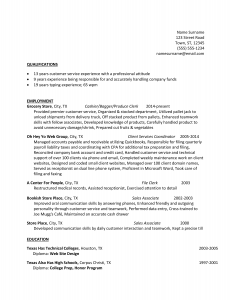
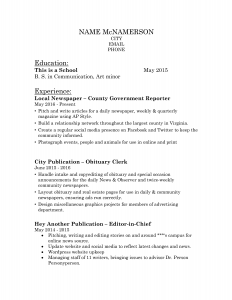
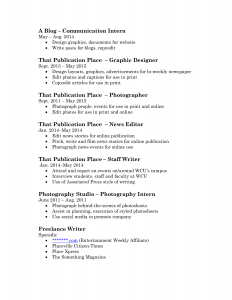
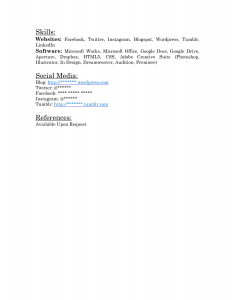
 So you’ve just come back from a job interview. You thought it went pretty well. But you wait and wait and wait, and don’t hear back for days. Maybe a week later, you get that dreaded email that thanks you for your interest, so sorry, they went with another candidate – or maybe you don’t get any response at all, and they ghost you like a bad date. So what the fuck went wrong? Why don’t they appreciate you for the precious snowflake you are?
So you’ve just come back from a job interview. You thought it went pretty well. But you wait and wait and wait, and don’t hear back for days. Maybe a week later, you get that dreaded email that thanks you for your interest, so sorry, they went with another candidate – or maybe you don’t get any response at all, and they ghost you like a bad date. So what the fuck went wrong? Why don’t they appreciate you for the precious snowflake you are?